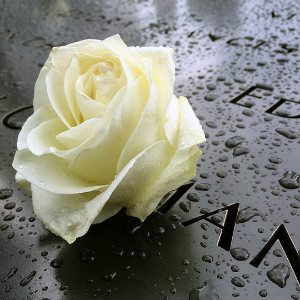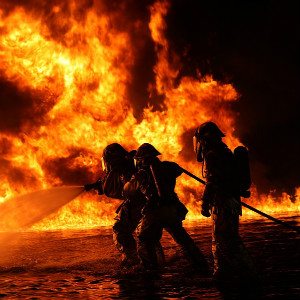It has been 15 years since the fateful day in New York when two planes flew into the Twin Towers, killing 2,996 people and injuring nearly 6,000 others. When the first plane hit the first tower, witnesses first thought that the incident was an accident, but it soon became clear as the second plane hit that an attack was underway. The attack resulted in the largest emergency services response in the history of the United States and the hardworking men and women who arrived to help the victims are still suffering today.
“The Pile”
In the seconds after the impact, thousands of calls were made to 911 from both inside and outside of the towers. Dispatchers at the call centers immediately began to send firefighters, police officers, and EMT’s to the site, which most people know is Ground Zero but the responders came to call “The Pile”.
When dispatchers sent emergency responders to a “single-alarm” emergency, six units are sent to the location. In a “five-alarm” emergency, 44 units are sent. On 9/11, a total of 214 FDNY units responded, including 112 engines, 58 ladder trucks, 7 squad companies, 5 rescue units, 4 marine squads, and numerous others. Initially, victims inside of the towers were told to stay inside and emergency crews were sent inside because no one expected that the buildings would collapse. But as the world now knows, it would take less than an hour for the first tower to fall.
The collapse killed thousands inside of the buildings and sent debris and dust flying for blocks around the World Trade Center (WTC). Even days after the collapse, dust as thick as three inches could be found as far away as six blocks from the origin. For those who were present at the time of the collapse, the dust, smoke, and debris was so thick that it was impossible to see and difficult to breathe. Many of the emergency crew workers knew immediately that they were being exposed to toxic materials but it didn’t stop them from pushing forward and doing their jobs.
The Aftermath
Burns, lacerations, and crush injuries were expected in both civilians and responders but what many didn’t realize was that there were other major health concerns that could be faced. Today, doctors and researchers have found that thousands of workers have suffered from:
“World Trade Center Cough”
Workers reported that in the days following the attack, they coughed up dark mucus the color of pea soup that contained actual particles or pieces of debris and many weren’t surprised that a cough and throat irritation were noted to be some of the first symptoms of what became known as the “world trade center cough”. Respiratory testing within a year of the attack showed that the majority of workers had a decreased lung capacity and further testing every year since then has shown the damage to be permanent.
GERD
Gastroesophageal reflux disease irritates the lining of the the esophagus and can cause serious damage. Typically daily medication and, in some cases, surgery are used to alleviate the pain and discomfort felt by patients.
Cancer
According to the Centers for Disease Control, more than 5,000 people have been diagnosed with cancer that can be directly linked to toxin exposure from 9/11. This includes but isn’t limited to cancers of the prostate, thyroid, leukemia, and multiple myeloma.
Chronic Sinus Inflammation
Sinus inflammation can lead to chronic infections. These infections don’t just stay in the sinuses but can also move into the lungs.
PTSD
When someone experiences a shocking or dangerous event, it can trigger long term “fight or flight” reactions. Victims with PTSD may be easily startled, feel constantly tense, have difficulty sleeping, suffer mood swings, have nightmares, and even flashbacks of the event.
Depression / Anxiety
Loss of appetite, panic attacks, insomnia, chronic fatigue are just a few of the symptoms of depression and anxiety. Given the horrors seen by 9/11 witnesses, like victims jumping from the burning buildings and the bodies found in the rubble, it’s hardly surprising that these conditions are frequently diagnosed.
Does Workers’ Comp Cover These Conditions?
Yes. Workers’ compensation insurance covers any illness or injuries that are sustained while working. In addition to this, employees may be able to obtain social security disability if they are unable to return to work. There are, however, limits to the time that a worker has to recover compensation. Since more than 15 years have passed, many survivors have been concerned that their time is running out. Luckily, Governor Cuomo recently signed a bill which extends their benefits.
The New Bill
Thanks to the bill, which Governor Cuomo signed on Sunday September 11th, 2016, the deadline for workers to collect lost wages and coverage for medical expenses is now September 11th, 2018. This also extends the time period available to collect disability benefits and death benefits.
Cuomo reported that he was willing to move forward with the bill because so many of the illnesses sustained by workers, like cancer, aren’t diagnosed for years. One woman, the wife of a FDNY firefighter who was recently diagnosed with terminal cancer called the bill a “gift of life and hope” and says that she believes it will help her family stay afloat financially after he passes.

